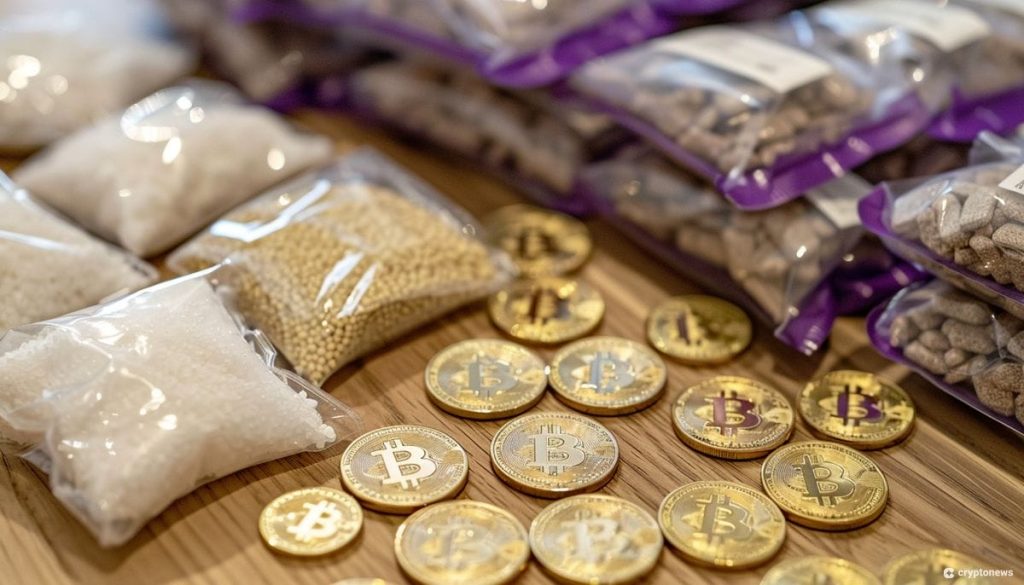South Korean police conducted a raid on a suspected crypto-powered drugs smuggling ring and arrested 34 people. The ring was found to be hiding drugs such as methamphetamine, synthetic marijuana, and ketamine in cosmetics products, using Vietnam-based smugglers to transport the drugs to South Korea. The gang members allegedly sold the narcotics online to crypto-paying buyers and used Telegram as a communications tool. The police remanded nine people in custody, including two suspected South Korean ringleaders, and charged 25 others with related crimes. The ring was reported to be active from August 2023 to April of the following year, with the police seizing a significant amount of drugs and funds in the raid.
The Korean-language Telegram channels have become a major marketplace for drug buyers and sellers, with reports indicating that they serve as a “department store” for such transactions. The Chungbuk Police Agency’s drug crime investigation unit carried out the raids on the suspected crypto-powered drugs smuggling ring. The police found a significant amount of synthetic marijuana, methamphetamine, and ketamine hidden in a mountainside and buried in the countryside. The gang members would periodically retrieve the drugs and sell them in small units through social media channels like Telegram, receiving payments in cryptocurrency. Photos of lipstick and other cosmetics containers used to hide the drugs were released by the police, along with details of the funds seized during the investigation.
South Korea is taking decisive actions to combat the surge in cryptocurrency-related crimes and fraud cases by establishing a permanent virtual asset investigative unit. This move comes in response to the growing use of cryptocurrency in illegal activities, including drug trafficking. Last year, President Yoon Suk-yeol declared an “all-out war” on crypto-powered drug trafficking, following a significant rise in youth drug crime. The police are urging the public to report any suspected instances of crypto-powered drug crime to the investigative agencies, as they continue their investigation into the smuggling ring and its operations. The case has been handed over to the prosecution service for further action.
The police authorities revealed that the ring used Vietnam-based smugglers to hide the drugs in cosmetics products before sending them to South Korea via international courier services. The suspects are believed to have hidden the drugs they received in a mountainside hole and in the countryside, with significant amounts of synthetic marijuana, methamphetamine, and ketamine being seized during the raids. The gang members would divide the synthetic marijuana into small vials and sell them through social media channels, with payments being made in cryptocurrency. Funds worth over $245,000 were seized during the investigation, and the police suspect that other individuals, including overseas suppliers, may be involved in the illegal activities.
The police have arrested and charged multiple individuals involved in the suspected crypto-powered drugs smuggling ring, including South Korean ringleaders and other gang members. The ring reportedly operated from August 2023 to April of the following year, selling narcotics online to crypto-paying buyers through platforms like Telegram. The police are still investigating the case and suspect that other individuals, both locally and internationally, may be connected to the ring’s operations. The authorities have seized a significant amount of drugs, funds, and other evidence related to the illegal activities, highlighting the growing use of cryptocurrency in drug trafficking and the need for enhanced measures to combat such crimes. President Yoon Suk-yeol’s declaration of an “all-out war” on crypto-powered drug trafficking underscores the government’s commitment to addressing this issue and protecting the public from the dangers associated with drug crime.


